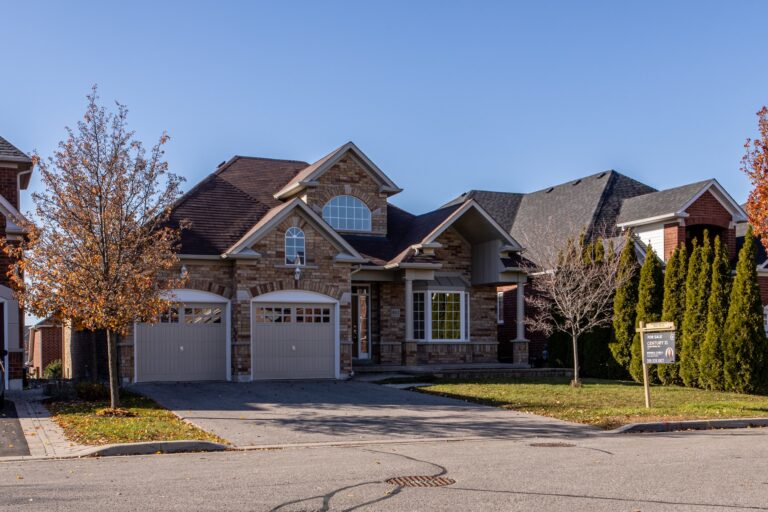You can sell a property without buying it. You do need to have the funds in reserve that your bank will want either as deposits for each mortgage you are seeking or proof of how much and where you would like your down payment from, but this is something you can discuss with them during the application process.
This myth stems from not knowing that there are actually two processes when it comes to buying and selling a house. The first is the mortgage process, where you apply for as many different mortgages with banks or lenders in order to get one that suits your financial situation and needs. This can be done before or after you have found a property – but not usually without finding any properties at all.
The second process is the conveyancing process, where you are buying and selling a property at the same time. This can only happen after you have found your perfect house or flat for sale before applying for one of these mortgages.
This is a common belief, but it’s not the case. The bank won’t give you an offer to purchase your house unless they think that you have enough income and savings to cover all of your costs (i.e., monthly mortgage payments). If they approve you for this loan, then buying a home in the UK will be possible.
If you find that the bank is asking for too much information about your income and savings, there are other ways to get approved. For instance, if you have a family member who will be buying the property with you, they can qualify by contributing their own money instead of yours. There are also some lenders like Virgin Money or Northern Rock that will consider people without a large income.
This is a big one. The United Kingdom has seen some of the most significant house price gains in recent years, so it’s not surprising that this myth would be prevalent. However, before you start renting your way to financial freedom, consider just how much you’re paying for those monthly payments: housing costs have outpaced wage growth over the past decade, and nowadays many people find themselves needing to spend more than one-third of their gross income on rent.
So what’s the solution? If you can’t afford to buy a house outright, then you might want to consider doing it in stages. That is partly why I decided with my husband that we’d build our home – he is an engineer, and he knew it would be cheaper to build than buy a pre-owned property. We started by building our house with just the basics for ourselves (i.e. one bedroom) then added on when we had more money – so now we have two bedrooms and are working on adding even more rooms including a study!
The costs of renting and buying are a bit different, but they’re not as disparate as people sometimes make them out to be. The following cost factors should be considered: the purchase price; mortgage or rental expenses; maintenance fees for house ownership (property taxes, homeowners insurance); ongoing living expenses (utilities, property management). Consider the following scenarios:
In the first scenario, after 20 years you would have paid £501,000 ($751K) to purchase while if you rented for those 20 years it would cost just £380.500($545k). If prices increase at a rate of five percent per year your total ownership costs will be $755,250.
In scenario B, the total cost of renting for 20 years would be £380.500($545K). The total cost to buy in this scenario is higher at £751k ($1010K), but if prices increase at a rate of five percent per year your rent costs will rise to $9925.
The truth is, there are many available options. You may just need to think outside the box a little bit more. For example, if you have trouble finding anything right now in your price range with easy commute times for both you and your potential employer (this will avoid any problems when you start looking at other houses), then look into buying a fixer-upper and renovate it. There are always properties in the same area on the market for much more than you were looking to spend, but they might be out of your range once a renovation is done.
Many people believe that if they are buying with someone else, then it will be possible to afford more property. The truth is the opposite: when you’re sharing the debt and expenses of a home together, there’s no way for either person to buy anything bigger or higher up on the ladder than what their partner would normally have afforded alone.
No, you don’t. The minimum down payment in the UK is just five percent of the purchase price. You’ll need a guarantor for mortgages that have an LTV higher than 75%. For example, if your home costs £300,000 and you’re borrowing 95% then your guarantor needs to be able to provide at least £21,000.
While you don’t need a 20% down payment in the UK, it’s important to have at least five percent of the purchase price before purchasing your home if you want a guarantor mortgage with an LTV over 75%.
Down payments are typically around ten or fifteen percent and some lenders will require as much as 25% if you’re borrowing 95%.
With a guarantor mortgage, the down payment requirement is often just five percent of the purchase price.
Some people might tell you that now is a bad time to buy because of the Pandemic. The truth, however, is the opposite: it’s one of the best times in history to invest in property due to both low-interest rates and falling prices – which means better deals for buyers. Britain has never been more open or welcoming as it is right now. The UK has one of the most developed and open economies in the world, with low inflation – which means now is as good a time to buy property like any other.





